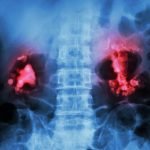Risk of Pandemics Could Be Correlated to Our Treatment of the Planet
Node Smith, ND
The study, by the University of the West of England and the Greenpeace Research Laboratories at the University of Exeter, presents the hypothesis that disease risks are “ultimately interlinked” with biodiversity and natural processes such as the water cycle.
Environmental destruction may make pandemics more likely and less manageable, new research suggests
Using a framework designed to analyse and communicate complex relationships between society and the environment, the study concludes that maintaining intact and fully functioning ecosystems and their associated environmental and health benefits is key to preventing the emergence of new pandemics.
Loss of benefits through ecosystem degradation
The loss of these benefits through ecosystem degradation — including deforestation, land use change and agricultural intensification — further compounds the problem by undermining water and other resources essential for reducing disease transmission and mitigating the impact of emerging infectious diseases.
Lead author Dr Mark Everard, of the University of the West of England (UWE Bristol), said: “Ecosystems naturally restrain the transfer of diseases from animals to humans, but this service declines as ecosystems become degraded.
“At the same time, ecosystem degradation undermines water security, limiting availability of adequate water for good hand hygiene, sanitation and disease treatment.
“Disease risk cannot be dissociated from ecosystem conservation and natural resource security.”
Dr David Santillo, of the Greenpeace Research Laboratories at Exeter, added: “The speed and scale with which radical actions have been taken in so many countries to limit the health and financial risks from COVID-19 demonstrate that radical systemic change would also be possible in order to deal with other global existential threats, such as the climate emergency and collapse of biodiversity, provided the political will is there to do so.”
Lesson from the COVID-19 pandemic
The researchers say the lesson from the COVID-19 pandemic is that societies globally need to “build back better,” including protecting and restoring damaged ecosystems (in line with the goals of the 2021-2030 UN Decade on Ecosystem Restoration) keeping the many values of nature and human rights at the very forefront of environmental and economic policy-making.
1. Mark Everard, Paul Johnston, David Santillo, Chad Staddon. The role of ecosystems in mitigation and management of Covid-19 and other zoonoses. Environmental Science & Policy, 2020; 111: 7 DOI: 10.1016/j.envsci.2020.05.017

Node Smith, ND, is a 2017 graduate of NUNM, is licensed in Oregon, and is also working towards licensure in Saskatchewan, Canada, where he lives. Node is associate editor and continuing education director for NDNR. His mission is serving relationships that support the process of transformation, which ultimately leads to healthier people, businesses, and communities. His primary therapeutic tools include counseling, homeopathy, diet and the use of cold water combined with exercise. Node has worked intimately with many groups and organizations within the naturopathic profession, and helped found the non-profit, Association for Naturopathic Revitalization (ANR), which works to promote and facilitate experiential education in Vitalism.









